Internship Training at The Children’s Room
It is rare that grief and bereavement are taught in academic programs. Sometimes it is attached to the study of the lifespan or a course on aging, but courses that teach that grief is a normal part of the human experience or that there are developmental aspects to how children grieve are not common. To intern at a place where one can work with children of all different ages who have experienced a death loss and with caregivers who may also be grieving is a unique experience.
The internship program at The Children’s Room (TCR) offers such an opportunity. The internship is offered to graduate and undergraduate students in the fields of social work, psychology, expressive arts, art therapy, and other concentrations from several different schools. It is a diverse group of students, reflective of the various disciplines of the clinical program team. It allows The Children’s Room the opportunity to recruit interns and partner with different academic institutions to increase awareness of training opportunities, of the importance of grief education, and to create connections between organizations. It also brings fresh ideas and new eyes every year to the staff at TCR. The students’ curiosity and questions spark new thoughts for the staff and help us better explore and explain the why of what we do. Their creativity and eagerness inspire us and it becomes a mutual learning throughout the year.
 The typical process is based on the submission of an application. The ten-month training begins with a half-day orientation, explaining the services and learning who is who and why the Children’s Room was their choice. Immediately following that, the interns spend 35 hours over the next two weekends in a Facilitator training. This training includes first learning and discussing loss, sharing personal experiences, and using video, the arts, discussion, and mindfulness to acknowledge the connection to loss in our own lives. The second weekend is a more skills-based training, again using a multi-modal learning approach to explore how children understand death at different ages, different types of death loss, the importance of play, and the skills required to run groups.
The typical process is based on the submission of an application. The ten-month training begins with a half-day orientation, explaining the services and learning who is who and why the Children’s Room was their choice. Immediately following that, the interns spend 35 hours over the next two weekends in a Facilitator training. This training includes first learning and discussing loss, sharing personal experiences, and using video, the arts, discussion, and mindfulness to acknowledge the connection to loss in our own lives. The second weekend is a more skills-based training, again using a multi-modal learning approach to explore how children understand death at different ages, different types of death loss, the importance of play, and the skills required to run groups.
Students participate as facilitators in peer support groups and in the many services provided at TCR. During the pandemic, TCR provided and maintained an ongoing solid training program on an entirely virtual platform and benefitted from the experience of students who have been going to classes virtually and becoming quite skilled at using technology for multiple purposes. As the world uses remote learning over time, these students will easily enter the mental health field with the ability to provide in-person and virtual programs. Every student is provided with weekly individual supervision. They also participate in a seminar weekly that is both didactic and experiential, covering such topics as grief theory and trauma, secondary losses, the use of expressive arts activities for personal work and for our families, and understanding the work of a non-profit organization. Additional supervision is provided for every group, including planning before the group, observing the group dynamics, and the facilitators’ reflections after each group.
There are many goals of this training program: learning about facilitating groups, child development, the difference between a time-limited group and an ongoing group, an in-person group versus a virtual one, how an in-person group in a school or community might differ from a virtual group, how to develop activities and implement them within a group, the theories that have developed and changed over time, and the importance of the use of the arts in working with this population. Knowing yourself better and how you have integrated grief into your own life allows one to listen more clearly to another. We keep in touch with many of our students as we watch them work in hospice, community centers, mental health clinics, residential schools, creative arts centers, and other grief centers. It is always helpful to hear how their training experience has helped them in their future work.
We know we are sending out ambassadors into many different fields and that our students, who will someday become professionals and possible colleagues, are well prepared to recognize and welcome whatever grief shows up at their door.



